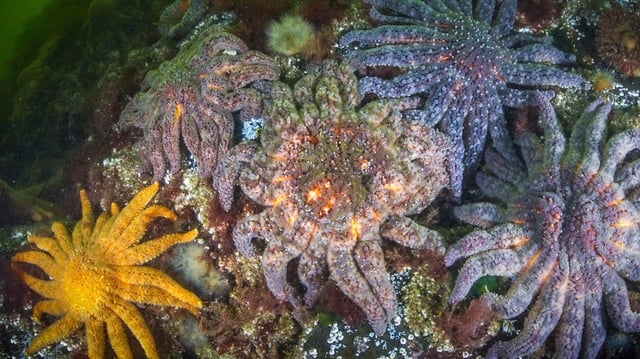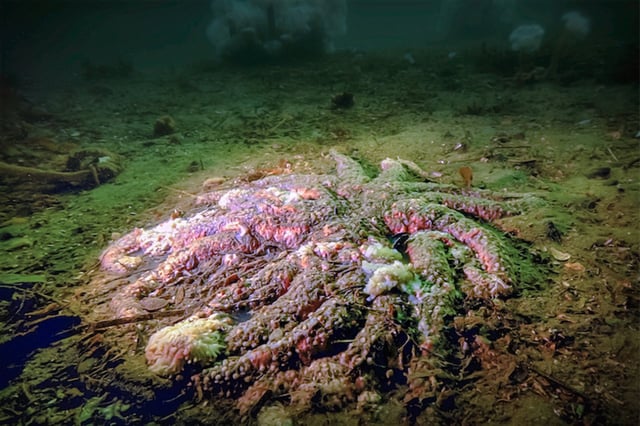Overview
- Scientists confirmed Vibrio pectenicida as the single definitive cause of sea star wasting disease through four years of controlled challenge experiments and genomic analyses of coelomic fluid.
- Researchers have cultured pure strains of the bacterium, laying the groundwork for field-ready diagnostic kits that can rapidly screen wild sea stars for infection.
- Conservation teams are launching captive breeding programs alongside probiotic treatment trials and targeted relocation to reintroduce sunflower sea stars into urchin-dominated habitats.
- Sunflower sea stars suffered a roughly 90% population collapse and are now listed as critically endangered, leading to explosive sea urchin growth and widespread kelp forest loss.
- Teams will study temperature-driven outbreak patterns and unknown transmission pathways to refine disease interventions under warming ocean conditions.


